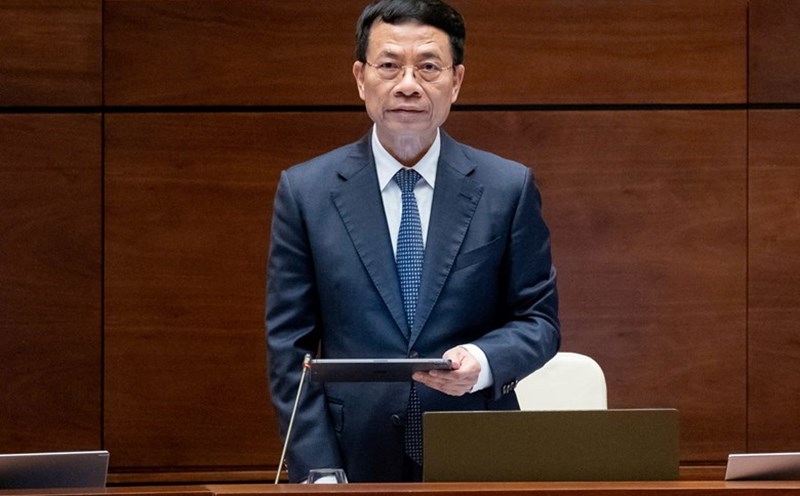General Secretary To Lam's speech at the 6th National Forum on Developing Vietnamese Digital Technology Enterprises, held on January 15 in Hanoi, attracted strong attention, not only because of the optimistic growth figures.
The General Secretary frankly pointed out the core weaknesses of Vietnam's digital technology industry.
General Secretary To Lam's speech makes us think. Vietnam is proud of its ranking in exporting phones and computer components, but Vietnam's added value is still modest.
General Secretary To Lam cited that Vietnam ranks 2nd in the world in exporting smart phones, 5th in computer components, 7th in software processing... However, "a shirt whose design, fabric, thread, and buttons are all from someone else" means we only enjoy the labor and environmental consequences.
Statistics also show that 89% of exported mobile phone components are imported, and in some large industrial parks, domestic enterprises mostly only provide meals, waste treatment or security services.
Frankly speaking, Vietnam’s digital technology has made certain progress, as shown by revenue growth and the number of businesses participating in international markets. However, as General Secretary To Lam affirmed, research and development (R&D) capacity still depends heavily on foreign resources.
This is a serious barrier to technological autonomy, causing Vietnamese enterprises to "stumble" at stages that are easy to copy and lack depth, instead of going deep into the "core layer" of technology.
In addition, most domestic enterprises do not have enough financial and technical resources to carry out large R&D projects, which require a long time and high risks.
From a macro perspective, this problem requires a serious, long-term national strategy, instead of focusing on “low-value” export achievements.
General Secretary To Lam's speech also expressed hope for the future, if Vietnam knows how to take advantage of the "golden opportunity" in the digital age.
Through efforts to invest in technology infrastructure, build policies to attract world-class experts, and encourage public-private partnerships, we can completely shorten the gap with technology powerhouses.
This requires determination from the Government, proactive participation from businesses, and especially a change in thinking about real value instead of stopping at "pretty" numbers.
Obviously, only by looking straight at the truth and correctly identifying its position on the international technology map, will Vietnam have the basis to outline a breakthrough strategy.
Instead of “deceiving ourselves” with “magnificent” but in-depth figures, we need appropriate steps and strategies to transform the digital technology industry from “processing” to “mastering”.
That is the true destination of a self-reliant digital technology industry, contributing to the country's strong and sustainable development in the 4.0 era.












